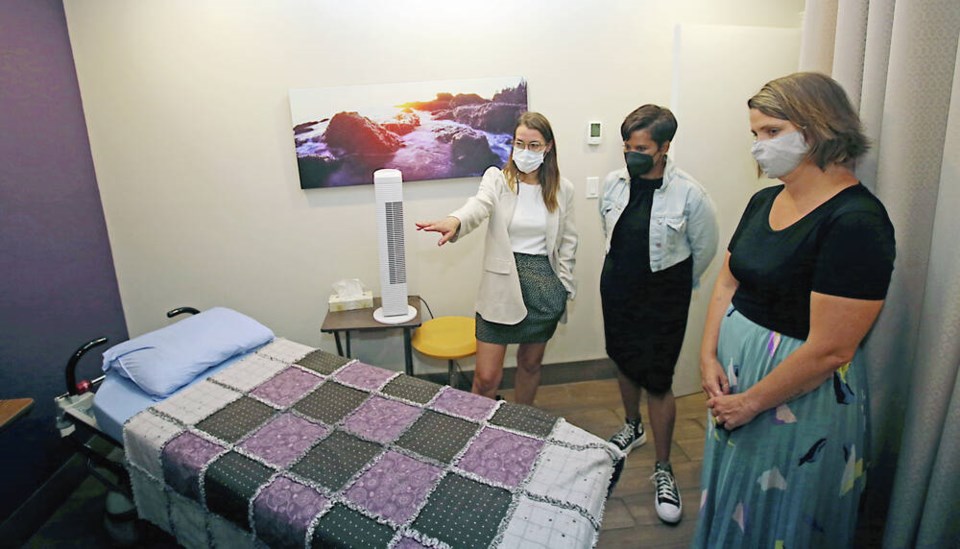The Victoria Sexual Assault Centre has eliminated long-term counselling in favour of offering more crisis support, something the organization said is desperately needed in the region.
The sexual assault survivor resource organization had a years-long wait list for long-term counselling. Meanwhile, sexual assault survivors in need of immediate crisis support were having to wait up to four months.
“Ultimately, we did need to make the decision to provide crisis counselling so we could really meet people where they’re at,” said Carissa Ropponen, manager of resource development and communications. “And that’s what the community was asking for and needed.
“Having folks wait for four months is unacceptable, especially in crisis.” Now, those in crisis can see a counsellor within a week of calling.
Last year, the centre provided about 300 counselling sessions. That number could be higher this year with the crisis-only model, Ropponen said.
The local organization was one of several sexual assault resource centres to receive funding from the Ending Violence Association of B.C. over the last two years. And now the province is further stabilizing funding by providing $22 million in the 2023 budget.
Ropponen said predictable funding allows the centre to rely less on a patchwork of grants, and focus more on serving survivors.
“This funding is just vital and critical for our centre and for this service to remain in the community,” she said.
On Monday, Ropponen took Grace Lore, B.C.’s parliamentary secretary for gender equality, and Marci Ien, federal minister for women, gender equality and youth, on a tour of the centre, which is the only wraparound sexual assault resource centre of its kind in the province.
The centre includes a “soft room” for counselling, a medical exam room, a police interview room, a shower and supplies like snacks, clean clothes and hygiene supplies.
The idea, Ropponen said, is that most survivors won’t have to go to a hospital or police department following an assault, and can access everything they need in the trauma-informed care of the centre’s staff and volunteers.
The organization provides services to about 1,000 people a year. In 2021, 109 people accessed the Sexual Assault Response Team (SART) a 24/7 emergency response, offered in collaboration with forensic nurse examiners, Island Health, and police.
“People want to come to a centre like this rather than going to the hospital,” Ropponen said, noting that all the staff on the Sexual Assault Response Team are specifically trained in trauma-informed practice.
“We’ve tried to cultivate a space where survivors can feel as at ease as possible given the circumstance.”
Lore said centralized, wraparound care is essential.
“In most cases, survivors don’t need to go to the hospital, they don’t need to go to the police station,” she said. “They can access their options for medical care, for preventative medication, for forensic exams and options for police reporting all in one place.”
>>> To comment on this article, write a letter to the editor: [email protected]


